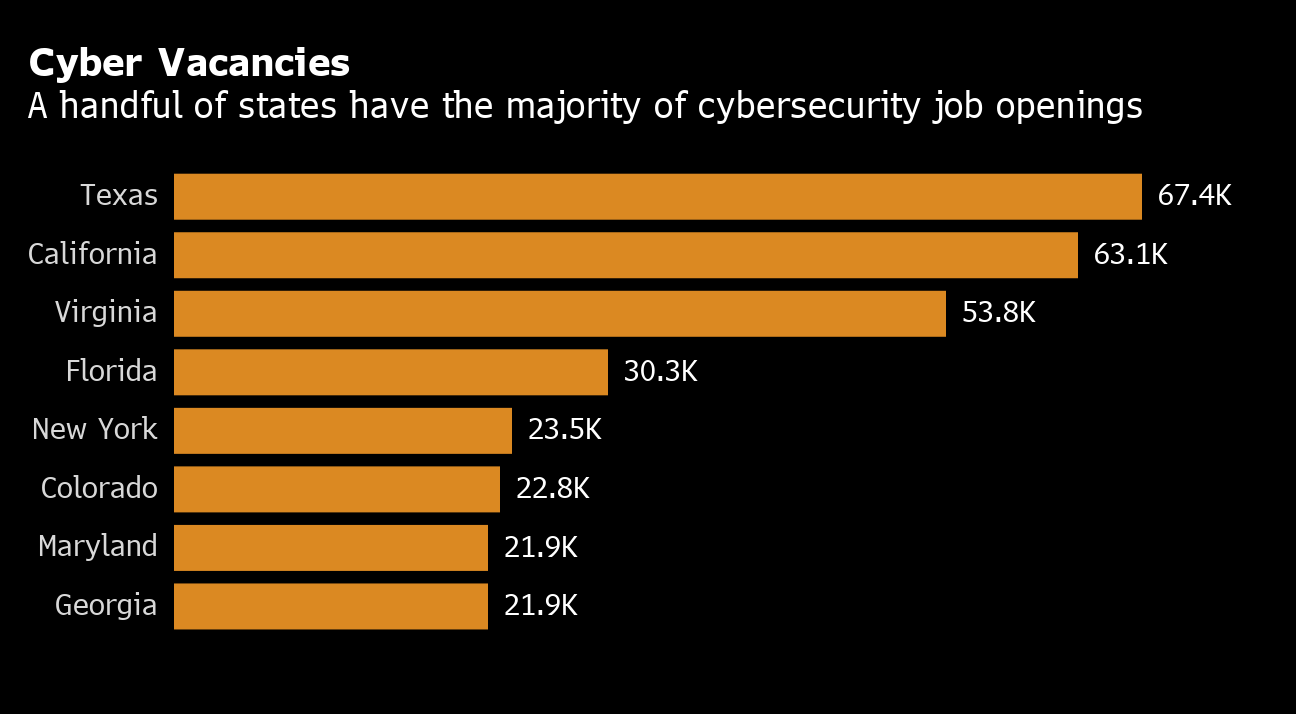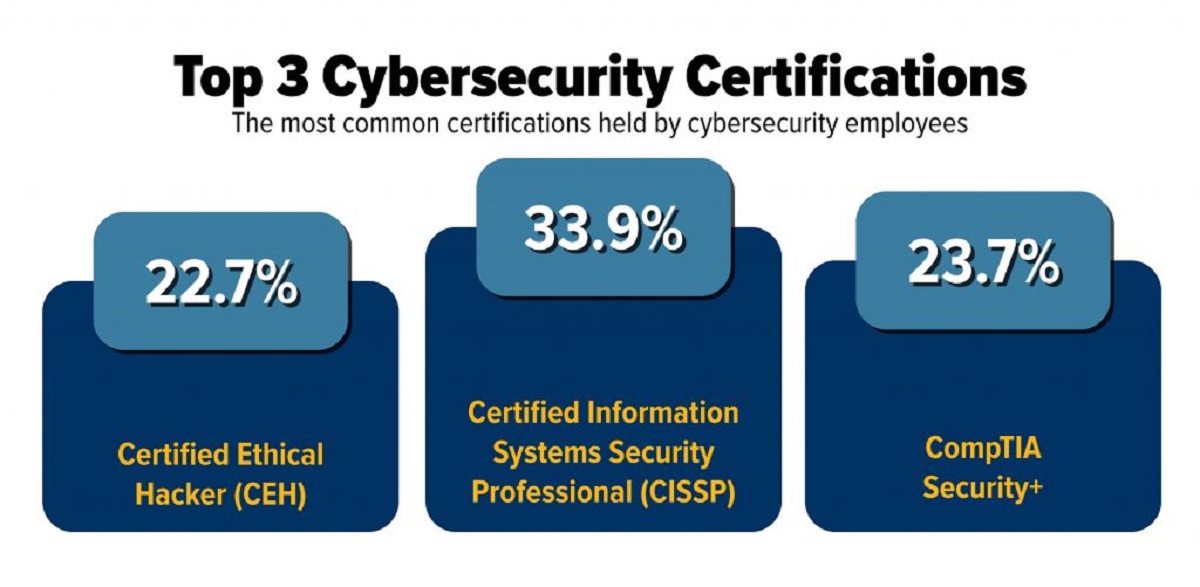Introduction
Welcome to the digital age, where technology and connectivity have become indispensable for nations around the world. As developing nations strive to strengthen their presence in the global arena, one crucial aspect that must not be overlooked is the need for a robust cybersecurity workforce. With the exponential growth of cyber threats and the increasing reliance on digital infrastructure, developing nations must prioritize the establishment of a skilled cybersecurity workforce to safeguard their technological advancements and protect their citizens from malicious activities.
Although developing nations face numerous challenges on their path to economic progress, neglecting cybersecurity can have severe implications. Both state-sponsored attacks and cybercriminal activities can disrupt essential services, compromise confidential data, and impede economic growth. By investing in and developing a skilled cybersecurity workforce, developing nations can enhance the protection of their digital infrastructure, prevent cybercrime, and unlock new opportunities for economic growth.
Furthermore, having a cybersecurity workforce of their own empowers developing nations to protect their digital sovereignty. Relying solely on external resources for cybersecurity measures can leave them vulnerable to foreign influence and control, compromising their technological independence and national security.
In the following sections, we will explore the three most important reasons why developing nations must prioritize the development of their cybersecurity workforce. By understanding the benefits and potential risks associated with cybersecurity, these nations can make informed decisions and allocate the necessary resources to build a strong defense against cyber threats.
Enhanced Protection of Digital Infrastructure
In today’s interconnected world, developing nations are rapidly embracing technology to drive economic growth and provide essential services to their citizens. However, this increased reliance on digital infrastructure also exposes them to numerous cyber threats. From sophisticated hacking attempts to malware infections, these vulnerabilities can have severe consequences in terms of national security, economic stability, and citizen trust.
By developing their own cybersecurity workforce, these nations can take proactive measures to protect their digital infrastructure. Trained cybersecurity professionals can assess vulnerabilities, implement robust security measures, and constantly monitor for potential threats. They possess the expertise to identify and respond to cyberattacks swiftly, minimizing the impact and preventing widespread damage.
Having an in-house cybersecurity workforce allows developing nations to customize their defense mechanisms to suit their unique needs and challenges. They can develop strategies tailored to their specific digital infrastructure and address any weaknesses or gaps in their security. This flexibility and adaptability are crucial in the face of evolving cyber threats.
Moreover, a local cybersecurity workforce can focus on developing comprehensive incident response plans. In the event of a cyberattack, rapid and effective response is crucial to minimize data breaches and mitigate further damage. Trained professionals can analyze the nature of the attack, identify compromised systems, and implement countermeasures to contain the impact. This proactive approach can significantly reduce the recovery time and associated costs for developing nations.
Additionally, an internally developed cybersecurity workforce enables developing nations to establish partnerships and collaborations with other nations, academia, and industry experts. By nurturing domestic talent and expertise, they can participate in global cybersecurity initiatives and contribute their knowledge and experiences to the international community.
Overall, an enhanced protection of digital infrastructure is vital for developing nations to safeguard their technological advancements, protect sensitive data, and maintain public trust. By investing in their own cybersecurity workforce, these nations can proactively defend against cyber threats, strengthen their digital sovereignty, and ensure the smooth functioning of essential digital services.
Prevention of Cybercrime
As technology continues to advance, cybercrime has become a pervasive and evolving threat for nations worldwide. Developing nations, in particular, are at risk due to their growing digital presence and often limited resources for combating cyber threats. By establishing their own cybersecurity workforce, these nations can play a proactive role in preventing and mitigating cybercrime.
A dedicated cybersecurity workforce possesses the knowledge and skills necessary to detect, investigate, and prevent cybercriminal activities. They can implement robust security measures, such as firewalls, encryption, and intrusion detection systems, to prevent unauthorized access to systems and sensitive data. By staying ahead of the ever-changing tactics employed by cybercriminals, developing nations can proactively defend against attacks and safeguard their digital assets.
Moreover, a local cybersecurity workforce can develop and implement awareness campaigns to educate citizens and businesses about the risks of cybercrime. They can raise awareness about common cyber threats, such as phishing, ransomware, and identity theft, and provide guidance on best practices for online safety. A well-informed population is more likely to adopt safe digital practices, reducing the vulnerability of individuals and organizations to cybercriminal activities.
In addition to prevention, a cybersecurity workforce can actively investigate and prosecute cybercrimes. They can collaborate with law enforcement agencies to gather evidence, analyze digital trails, and identify those responsible for cyberattacks. By strengthening their investigative capabilities, developing nations can send a strong message that cybercriminals will face consequences for their actions, thereby deterring potential threats.
Furthermore, developing nations can leverage their cybersecurity workforce to develop partnerships with international law enforcement agencies, organizations, and private sector entities. Collaboration on cybercrime prevention and intelligence sharing can facilitate the identification and tracking of cybercriminal networks, leading to their disruption and dismantling. By actively participating in global efforts against cybercrime, developing nations can contribute to a safer and more secure digital landscape for all.
Overall, the prevention of cybercrime is a crucial aspect of national security and economic stability for developing nations. Establishing their own cybersecurity workforce enables these nations to take proactive measures to prevent and combat cybercriminal activities. By investing in skilled professionals and fostering international collaborations, developing nations can create a safer digital environment for their citizens and businesses.
Economic Growth
Developing nations are constantly striving to achieve economic growth and improve the standard of living for their citizens. In the digital era, the strength of a nation’s cybersecurity infrastructure plays a vital role in attracting and retaining foreign investments, fostering innovation, and ensuring the smooth functioning of critical sectors. By developing their own cybersecurity workforce, these nations can unlock new opportunities for economic growth.
A robust cybersecurity workforce inspires confidence among foreign investors. When companies are considering investing in a particular nation, they prioritize a stable and secure business environment. A well-established cybersecurity workforce demonstrates a commitment to protecting sensitive data and intellectual property, which enhances the overall investment climate. This, in turn, attracts companies to set up operations, create job opportunities, and contribute to the nation’s economic growth.
Furthermore, a strong cybersecurity ecosystem nurtures local innovation and entrepreneurship. Developing nations with a skilled cybersecurity workforce can foster the development of homegrown cybersecurity firms, technology startups, and research centers. These entities not only contribute to the local economy but also drive advancements in cybersecurity technology and practices. The presence of such innovative hubs can position developing nations as leaders in cybersecurity and attract international collaborations, further fueling economic growth.
A well-trained cybersecurity workforce can also assist in protecting critical sectors, such as banking, healthcare, energy, and transportation, from cyber threats. By ensuring the integrity and availability of these essential services, developing nations can attract global partners and investors who rely on them. The ability to provide a secure digital infrastructure and minimize disruptions enhances the nation’s reputation and encourages companies to establish a presence, bringing economic opportunities and job creation.
Moreover, a locally developed cybersecurity workforce can offer cybersecurity services and consultation to other nations, generating revenue streams and fostering international collaborations. By leveraging their expertise, developing nations can position themselves as reliable partners in the global cybersecurity landscape.
Overall, investing in a cybersecurity workforce contributes to the economic growth and stability of developing nations. By providing a secure digital environment, attracting foreign investments, fostering innovation, and protecting critical sectors, these nations can create a favorable business climate that paves the way for sustainable development and prosperity.
Conclusion
The establishment of a skilled cybersecurity workforce is paramount for developing nations in the digital age. By prioritizing the development of this workforce, these nations can enhance the protection of their digital infrastructure, prevent cybercrime, and unlock new opportunities for economic growth.
By investing in a dedicated cybersecurity workforce, developing nations can significantly bolster the protection of their digital infrastructure. Trained professionals can implement robust security measures, develop tailored incident response plans, and establish partnerships to stay ahead of evolving threats. This proactive approach strengthens the nation’s digital sovereignty and ensures the smooth functioning of critical services.
Additionally, a cybersecurity workforce can play a crucial role in preventing and mitigating cybercrime. Through awareness campaigns, strong preventive measures, and active investigation and prosecution of cybercriminal activities, developing nations can create a safer digital environment for their citizens and businesses. This not only protects sensitive data but also fosters a sense of trust and confidence among stakeholders.
Furthermore, a skilled cybersecurity workforce contributes to economic growth by attracting foreign investments, fostering innovation, and protecting critical sectors. It inspires confidence among investors, nurtures local entrepreneurship, and positions developing nations as leaders in cybersecurity. This, in turn, creates job opportunities, drives technological advancements, and strengthens the overall economy.
In conclusion, developing nations must recognize the importance of developing their own skilled cybersecurity workforce. By doing so, they can safeguard their digital infrastructure, protect against cyber threats, and drive economic growth. Investing in training, education, and collaboration will not only secure their technological advancements but also empower them to actively participate in the global cybersecurity landscape. The time to act is now, as the digital landscape continues to evolve, and the stakes of cybersecurity have never been higher.

























